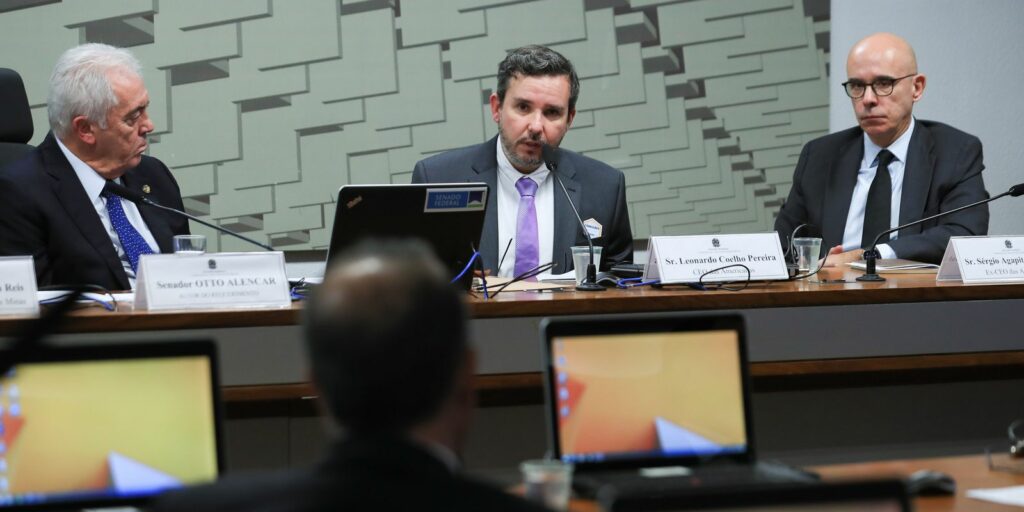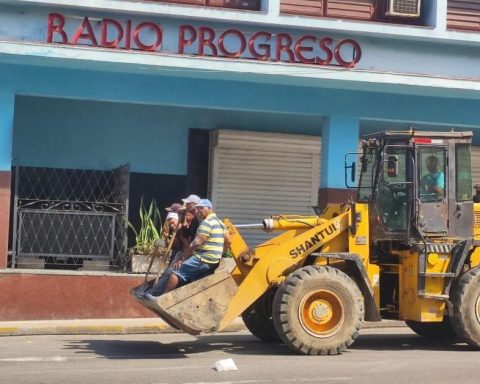The murder – at dawn on Sunday – of 2nd Sergeant Rita Olivares, generated great public commotion. Apart from the usual political exploitation of security issues by the right, which holds the government responsible, and the left, which claims not to be responsible for the free fall in citizen support of the institution, the dramatic event prompted a unanimous agreement of parliamentarians to expeditiously legislate laws that toughen penalties for violence against police officers.
The cross-cutting support for legislating in this matter led to the infrequent decision in Congress to cancel the district week for deputies and senators, so that the parliamentarians would remain these days in Valparaíso working on a forceful legislative package, which would demonstrate to public opinion and the police that there was concern about the latest events that have affected members of the Carabineros.
This is how the frantic legislative work began yesterday in the Chamber with the objective of processing emblematic laws, such as the Sergeant Retamal Law and the Naín 2.0 Law, in addition to the anti-hitmen and anti-extortion laws. In a matter of hours, the Chamber of Deputies and Deputies dispatched the bill that modifies the Criminal Code to aggravate the penalties for the crime of kidnapping when the detention or confinement lasts for more than 48 hours, in addition to the initiative that seeks to toughen the regulation of weapons in Chile (Law 17,798), and that increases the penalty for the crime of carrying weapons in highly crowded places. In both projects, there was no discussion, proposal for improvements or reflection. They were approved unanimously with no abstentions.
Parliamentary voluntarism, very given to expressly tightening penal regulations that, in normal times, require a leisurely discussion to avoid colliding with individual liberties, was giving way –according to various experts– to a “dangerous punitive populism”. The blurred line between the will to improve the current legislation to vehemently confront criminal violence and authoritarianism, was reflected in the ideas of several parliamentarians who seek to reinstate the State of Exception in the Metropolitan Region, a measure widely used during and after the outbreak social, in a pandemic, in the region of La Araucanía and in the north of the country, and which made the country one of the nations in the world with the longest use of this exceptional constitutional measure.
One of the first to raise the idea of putting the military on the streets to inhibit criminal action and restrict, at the same time, the right to free movement of people through the curfew, was the socialist senator Juan Luis Castro ( PS), who tweeted: “I support the State of Exception in the Metropolitan Region, if it includes a curfew, why not? There are communes captured by crime, there needs to be a powerful deterrent factor”.
Deputy Tomás Lagomarsino (PR) also got on this car, who pointed out on the same social network: “At least we see in the State of Exception a way to support Carabineros in their daily work, which in the case of Greater Valparaíso It could be from the Navy contingent”, something that the candidate for constitutional counselor and former Minister of the Interior, Rodrigo Delgado, also suggested in previous days. In this list of proposals, the one made by the Undersecretary of the Interior, Manuel Monsalve, who proposed speeding up the processing of a new Penal Code, also stood out.
It is in this context of legislative proposals and requests for tougher sentences and security measures, that two criminal experts call to avoid rather “gimmicky” measures and to be careful to take care of basic and essential individual rights. Both the lawyers Cristián Riego and Mauricio Duce agree that this series of bills is more of the same and that laws are being re-legislated to increase penalties for crimes against police officers, restrict alternative penalties, or reclassify penalties in some crime categories. Meanwhile, for the expert in citizen security from the Faculty of Government of the University of Chile, Alejandra Mohor, what was seen in Congress is confirmation that punitive populism has been installed, since the proposed measures have not proven to be effective. in reducing crime rates.
“No one in the country has yet asked the question of what explains why we have had the highest homicide rates during 2020, despite being in a pandemic, with conditions of restrictions on mobility by the State of Exception. What explains why this happened?”he wonders.
many promises
For Mauricio Duce, criminal lawyer and academic at the Diego Portales University, it is very likely that parliamentarians are legislating “promises that they will not be able to keep”, because it has not been proven that changes in penalties reduce crimes or violence against police officers, and he points out that it would be better to see more organic and rational proposals, because “today, rather, what we are seeing is that there is a pressure to go towards issues that exceed the margins of rationality”.
Duce is emphatic in clarifying that “a criminal system has to be built on foundations with balances that allow, on the one hand, to provide tools for the effectiveness of criminal prosecution and, on the other hand, to defend the basic individual rights of people. When you only advance in one component, without balancing the other, they end up paying just for sinners.”
Duce also draws attention to insisting on increased penalties: “When you deliver a blank check, you need the right counterweights for the exercise of the monopoly of force. If you don’t put the counterweights, you run the risk of police abuse, trigger-happy cases, which is also not convenient”.
“In my opinion – he adds – the probability that these laws have of effectively solving security problems is very low or very marginal, because the underlying problems are not being addressed.”
support to police
For Cristián Riego, also a criminal lawyer and professor at the Diego Portales University, the security problems “are not legislative, they are operational” and points out that these security packages are not aimed at helping the police officers in their daily work: “It would be much more important to achieve better coordination between police forces and the rest of the system. Training must be improved, as well as support for police officers who are questioned or have been criminally charged, because in these cases the police officer does not have an appropriate defense, is suspended from office and does not have significant institutional support.”
Riego also considers that it would be better to support the training of the police officers to face violent situations, improve their self-defense practices and the use of weapons. “The logical thing would be to carry out a study with the police themselves, in which you ask them what are the difficulties they face and on that basis make a proposal for changes aimed at solving the shortcomings”, he points out.
Increased lethality
The sociologist Alejandra Mohor, from the Center for Security Studies of the Faculty of Government of the University of Chile, is also critical of the legislative work that we have seen this week: “I am very concerned about this consolidation of the bills that have been called Naín and broom. In particular, the privileged self-defense causes me great concern (…). It can be a procedural safeguard regarding the use of deadly force. What we see in the experience of the United States is that these types of measures have only resulted in greater lethality, without reducing crime at all (…). I believe that the tenor of the discussion that we have today is far from getting closer to the true paths to mitigate the problems of violence and crime that we face today”.
Mohor also expresses his concern about the possibility that we end up “willing to sacrifice individual liberties under the false premise that this will reduce crime.”
For the sociologist from the University of Chile, this reaction of the political class is the result of the polls: “I think that today they are sending the polls, polls that reflect a public opinion that is formed through some mass media and that have a political orientation. I see Chile as a country that very easily assumes that it is normal and inevitable to live under states of total control, because they have not offered us many alternative paths and, when they have, they have been seriously threatened.
Regarding extreme measures such as States of Exception to control criminal violence, Mohor is categorical in affirming that this does not give results.
“It is enough to see what happened during the pandemic situation, with a curfew, with extreme mobility limitations, and what happened? We had the highest homicide rates in our recent history. So, there is nothing in empirical reality that supports these types of statements. Nothing. However, these false realities are constructed, these false assurances, and they divert us from the real problems, from the problems that actually underlie the increase in violence, the increase in crime, about how they are how our institutions are working, how preventive work has been done during these years in the territory, in the most marginalized sectors. The reality that has led to punitive populism is built with political interests,” he concludes.


















